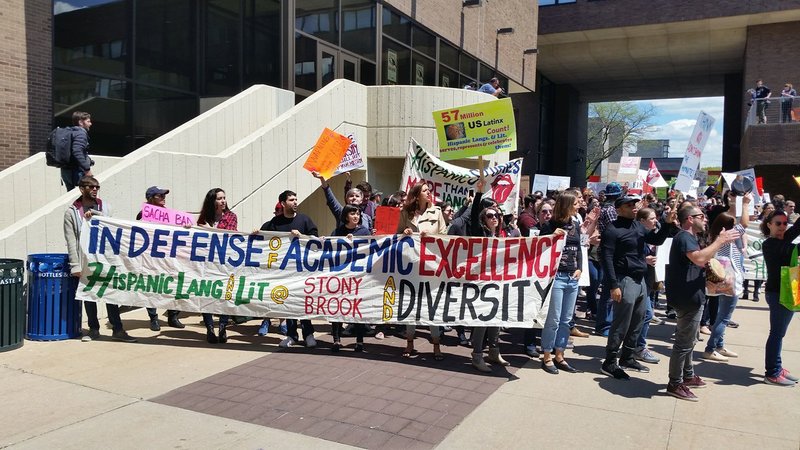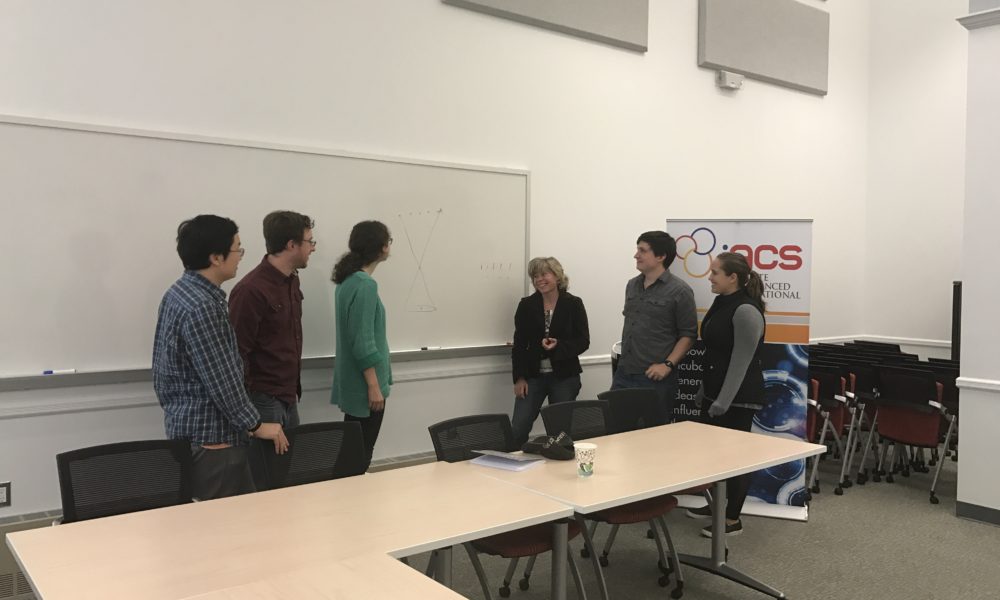As colleges shift their priority towards the STEM field, the potential effects of curtailing the liberal arts have come into question. In recent years, many collegiate liberal arts programs have found themselves struggling to maintain a prominent role in higher education. State legislators have offered funding bonuses for high demand degrees that reflect work most needed in a given state. In turn, incentive to promote the humanities has declined. This has been seen at Stony Brook University, which chose to cut several humanities programs within the College of Arts and Sciences to address its budget deficit.
And while research by the U.S. Department of Education has found that STEM degrees yield higher salaries on average than their counterparts, many educators are left to ponder the consequences of sending college graduates into the workforce without a solid foundation in the liberal arts.
Bente Videbaek is a Stony Brook University Professor who teaches several English courses in topics including early modern drama, science fiction and high fantasy. She is one of many who believe that all students should study the liberal arts, regardless of their undergraduate major. “I think that in most fields, it is necessary to be able to communicate, and English is very good at teaching people to be able to communicate clearly, both in writing and in person,” she said.
In fact, a 2013 study by the American Association of College and Universities found that 93 percent of employers believe that a “candidate’s demonstrated capacity to think critically, communicate clearly and solve complex problems” is more important than their undergraduate major.
“That’s basically all we do,” said Professor Videbaek.
A large part of the humanities program’s unique ability to foster these skills derives simply from the structure of the classes. Courses such as English are often taught in small classrooms rather than the large lecture halls typical of STEM classes.
“When you sit with peers in a small class and have read the same piece of literature, we can get a discussion going where you have to argue your point,” Professor Videbaek explains. “We don’t sit, necessarily in a huge lecture hall and get talked at. We can be creative from freshman year and nobody stops you from thinking.”
And aside from the benefits of a smaller classroom setting, the liberal arts gives students a more effective platform to carry out debate, since topics often lack the definitive right and wrong answers that are sought in the sciences. “It’s very hard to have a spirited conversation about proof in math, because it is,” Videbaek said.
Still, students often shy away from participating in these fields. A Wakefield Research survey found that only 16 percent of 18-34 year olds consider “soft skills,” personal attributes such as communication and leadership that liberal arts courses often seek to develop, useful to career advancement.
And as students rack up more college debt and the financial value of college degrees become increasingly questioned, liberal arts have often found themselves perceived as more of a luxury item than an essential skill.
It may serve to demonstrate why a 2016 study found an 8.7 percent drop in humanities bachelor’s degrees within the past two years.
But even when the humanities field is not the focus of students’ career goals, liberal arts advocates still maintain their sense of importance.
“The skill of writing is something that I enjoy and I plan on taking it with me for the rest of my professional and personal life,” said Rachel Louie. Louie is a Health Science major at Stony Brook University who took one of Professor Videbaek’s English courses and writes creatively as a hobby. “I want to have a career where I can apply the expertise I have learned here.”
Such findings are reflective of a larger effort to combine STEM and the Liberal Arts for undergraduate programs. Wesleyan University has created a BA/MA program for natural sciences, mathematics, and psychology that provides students with opportunities to do extensive research in their field of interest and strengthen their professional background.
Many graduate schools are also seeking to take in more students with background in the liberal arts. Prestigious medical schools like Mount Sinai are pushing to accept more of what they call “HuMed” majors, premed students with undergraduate degrees in the liberal arts, in an effort to produce more well-rounded doctors who can communicate and empathize with their patients.
Additionally, a study done at the University of North Texas found that English majors score higher on average on the Law School Admissions Tests than even pre-law or criminal justice students. However, it was the physics and math majors who ultimately came out on top.
Rachel Louie said she also plans on attending grad school. Though she has not decided what she wants to study yet, she does feel that her background in writing will give her a useful advantage. “I consider being able to write eloquently an extremely valuable skill, as most employers and peers will judge you by your grammar and prose when they read your works,” she said. “They are especially impressed when you can craft your words cleverly and intelligently. I definitely think that being an expert at this will give you an advantage over your competitors.”
Sources:
http://www.businessinsider.com/stem-majors-earn-a-lot-more-money-after-graduation-2014-7
http://taxprof.typepad.com/taxprof_blog/2009/09/physics-math.html
https://blog.ivywise.com/blog-0/cant-choose-these-colleges-combine-liberal-arts-and-stem-education
http://www.wesleyan.edu/grad/degree-programs/ba-ma.html




Comments are closed.